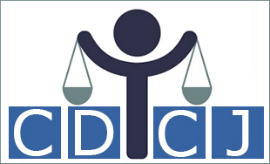On 13 December 2018, a round table «The length of civil proceedings: analysis of the Civil Procedural Code of Ukraine in the context of judgments of the European Court of Human Rights» was held in Kyiv. The event was jointly organised by the Supreme Court and by Council of Europe projects “Supporting Ukraine in execution of judgments of the European Court of Human Rights” and “Support to the implementation of the judicial reform in Ukraine”.
The round table was attended by judges of the Supreme Court, members of the working group of the Supreme Court for the analysis of the length of judicial proceedings in Ukraine, heads and judges of appellate courts of general jurisdiction, representatives of the High Council of Justice, of the Administration of the President of Ukraine, of the Ministry of Justice of Ukraine, as well as by representatives and experts of the Council of Europe.
The event aimed at presenting and discussing a draft Analysis of the Civil Procedural Code of Ukraine from the point of view of its impact on the length of judicial proceedings. The Analysis in question was prepared within the Council of Europe project “Supporting Ukraine in execution of judgments of the European Court of Human Rights”, its objective was to answer the following questions:
which timeframes for the examination of civil cases are established by the Civil Procedural Code of Ukraine, and how these timeframes correspond with the reasonable length requirements developed in the case-law of the European Court of Human Rights;
whether the regulation of different procedural stages and of the trial proceedings in general are efficient, coherent, reasonable and in line with other Ukrainian legislation on the judiciary and the new court structure;
which institutes or instruments introduced by the Civil Procedural Code of Ukraine provide judges with the possibility to accelerate the proceedings in an individual case, or to efficiently examine repetitive cases, and others.
Mr Borys Gulko, President of the Cassation Civil Court within the Supreme Court, and Mr Rasim Babanly, Head of Department of Analytical and Legal Work of the Supreme Court and Head of the working group for the analysis of the length of judicial proceedings in Ukraine, informed the participants about courts practice in certain groups of cases within the civil proceedings, and about the relevant court statistics.
Experts and representatives of the Council of Europe - Mr Ðuro Sessa, President of the Supreme Court of the Republic of Croatia and President of the Consultative Council of European Judges, and Mr Matteo Fiori, Legal Officer, Department for the Execution of Judgments of the European Court of Human Rights – shared good practices of member states in dealing with excessive length of civil proceedings.
Opening speeches at the round table were delivered by: Mr Regis Brillat, Special Advisor of the Secretary General of the Council of Europe for Ukraine, Ms Hanne Juncher, Head of the Justice and Legal Co-operation Department of the Council of Europe, and Mr Fredrik Sundberg, Acting Head of the Department for the execution of judgments of the European Court of Human Rights of the Council of Europe.
The round table became the first event dedicated to the analysis of the new procedural legislation of Ukraine and of the practice of its application from the point of view of their impact on the length of judicial proceedings. The Supreme Court and the Council of Europe project “Supporting Ukraine in execution of judgments of the European Court of Human Rights” will further analyse the Commercial Procedural Code of Ukraine, the Code of Administrative Justice of Ukraine, and the Criminal Procedural Code of Ukraine.
The Council of Europe project “Supporting Ukraine in execution of judgments of the European Court of Human Rights” is financed by the Human Rights Trust Fund and implemented by the Justice and Legal Co-operation Department of the Council of Europe. The overall objective of the project is to support Ukraine in the improvement of its national system of execution of judgments of the European Court of Human Rights that involve violations of Article 6 of the European Convention on Human Rights, where the root cause is an issue within the judiciary. The Project is focused on the following areas: independence and disciplinary of judges, effective remedies from non-enforcement of judgments of national courts and from excessive length of judicial proceedings, and on effective mechanisms of co-operation between the Supreme Court and the European Court of Human Rights.
WEB LINKS TO THE EVENT




